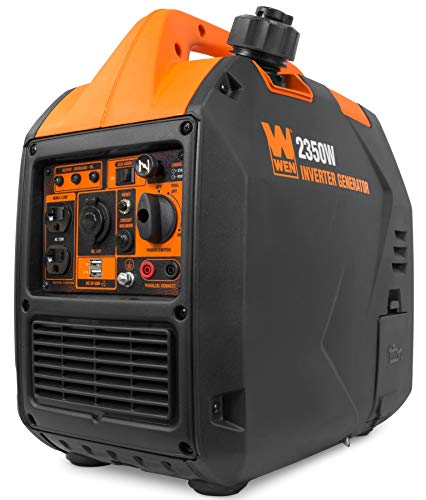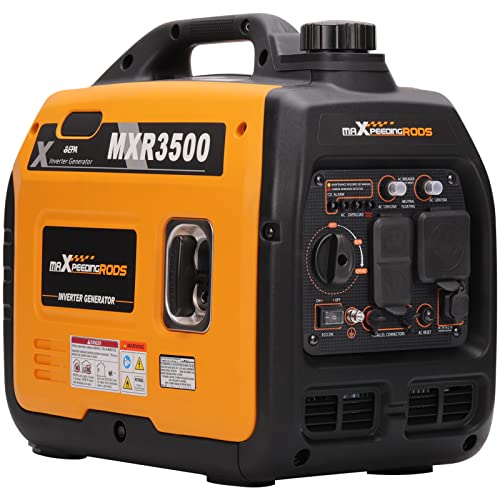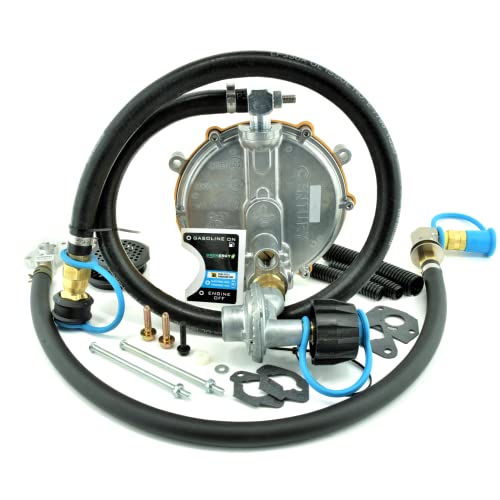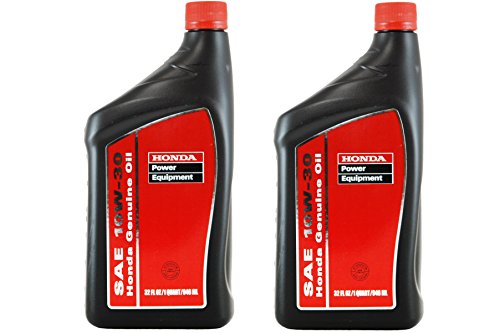You've likely considered the importance of having reliable extension cords for connecting your generator to a refrigerator, especially during power outages. With expert recommendations, you'll discover top-performing options like the Champion Generator Extension Cord and Yodotek Heavy Duty Adaptor. These cords are designed to handle high demands, offering durability and weather resistance. Ready to explore the best options for your emergency preparedness kit? There's more to uncover about making the right choice.
Champion Generator Extension Cord (25-Foot, 30-Amp, 125-Volt)
If you're looking for a reliable and durable extension cord for your generator, the Champion Generator Extension Cord might just be the perfect fit. It's a 25-foot, 30-amp, 125-volt cord that effortlessly converts a 30-amp locking outlet into three 15-amp household outlets. With its robust 10-gauge wire, it's designed to handle power needs efficiently. I appreciate its outdoor-rated, weather-resistant insulation, ensuring flexibility even in extreme temperatures. Most importantly, it lets you safely run your generator from a distance. Plus, its fan-style design and lifetime technical support make it a practical choice for powering essentials during emergencies.
Best For: Those seeking a reliable and durable extension cord for safely powering essential items from a generator during emergencies.
Pros:
- Converts 30-amp locking outlet to three 15-amp household outlets.
- Durable, outdoor-rated insulation withstands extreme temperatures.
- Comes with a 1-year limited warranty and lifetime technical support.
Cons:
- The multi-outlet configuration may not suit all needs.
- Some users found the cord to be rigid.
- Best Sellers Rank is lower compared to other similar products.
Yodotek 25 Feet Heavy Duty Generator Adaptor Extension Cord
For those seeking a reliable extension cord for their generator, the Yodotek 25 Feet Heavy Duty Generator Adaptor Extension Cord stands out due to its impressive durability and power capacity. With a 4-prong, 10-gauge flexible cable, it can handle 30 amps, 7500 watts, and up to 250 volts. Its heavy-duty construction features solid copper wires, preventing overheating even during long-term use. The twist-locking design guarantees a secure connection, making it perfect for adverse weather conditions. Plus, it's versatile, distributing power across four 20-amp outlets. Whether for camping or home, it won't trip breakers, and users love its performance.
Best For: Those seeking a reliable and durable extension cord for generators, suitable for both home and camping use.
Pros:
- Heavy-duty construction prevents overheating during long-term use.
- Twist-locking design ensures a secure connection in adverse weather conditions.
- Can distribute power across four 20-amp outlets without tripping breakers.
Cons:
- Limited to 25 feet length, which may not be sufficient for all setups.
- May be overkill for those needing less power capacity.
- Heavier than standard cords due to its durable construction.
GEARit 30-Amp Generator Extension Cord, 10 Ft, Green
Choosing the right extension cord for your generator can make all the difference in maintaining reliable power during critical times. The GEARit 30-Amp Generator Extension Cord, 10 Ft, Green, offers superb performance with its 120/250-Volt, 4-Prong design supporting up to 7500 watts. Made with 100% oxygen-free copper, it guarantees clean, consistent power. Its bright green jacket increases visibility, while the twist lock plug prevents disconnection. Users praise its sturdy, heavy-duty build and effectiveness during outages. Priced reasonably, it's a reliable choice for guaranteeing your refrigerator stays powered, even when the lights go out. It's a dependable investment for any household.
Best For: Homeowners and individuals needing reliable power solutions during outages or for essential equipment connections.
Pros:
- Made with 100% oxygen-free copper for clean and consistent power.
- Bright green jacket enhances visibility for safety.
- Twist lock plug prevents accidental disconnection.
Cons:
- Limited to 30 Amps, may not be suitable for higher power needs.
- Only available in specific lengths, might require additional cords for longer distances.
- Some users may need to modify the cord for specific applications.
S7 Heavy Duty Generator Adaptor Extension Cord (25 Feet)
When you're preparing for emergencies or outdoor events, the S7 Heavy Duty Generator Adaptor Extension Cord (25 Feet) stands out as a top choice. With its 10-gauge, 4-prong design, it supports up to 30A and 7500W, ensuring reliable power to your refrigerator and other appliances. The cord's pure copper construction prevents overheating, and its weather-resistant design with twist-lock plugs keeps connections secure, even in harsh conditions. Customers rate it highly for quality and safety, though its thickness might limit fitting under doors. It's a versatile solution with four 120V outlets, perfect for balancing loads during power outages.
Best For: Individuals needing a reliable and durable generator extension cord for emergency situations or outdoor events, capable of powering multiple appliances safely.
Pros:
- Supports up to 30A and 7500W, providing ample power for various appliances.
- Weather- and fire-resistant design ensures safety in harsh conditions.
- Four 120V outlets allow for balanced load distribution.
Cons:
- Thickness of the cord may limit its ability to fit under doors.
- Heavier weight at 9.38 pounds could be cumbersome for some users.
- Availability may be limited due to its ranking and demand in its category.
CircleCord 10 Feet 30 Amp Generator Extension Cord with Inlet Box
Looking for a reliable extension cord for your generator that's ready for emergencies? The CircleCord 10 Feet 30 Amp Generator Extension Cord with Inlet Box is a solid choice. It features a heavy-duty NEMA L14-30P/L14-30R design, supporting up to 7500W. The cord's pure copper wiring, encased in flame retardant and UV resistant PVC, guarantees durability in harsh conditions. With pre-drilled knockouts and rubber plugs, setup is a breeze. Plus, it includes a storage bag and adjustable organizer for convenience. Users rave about its performance during outages, earning it a stellar 4.8 out of 5 stars from 754 reviews.
Best For: Individuals seeking a reliable and heavy-duty extension cord for connecting their generator to a manual transfer switch during power outages.
Pros:
- Durable construction with pure copper wiring and flame retardant, UV resistant PVC.
- Easy setup with pre-drilled knockouts and rubber plugs.
- Includes a storage bag and adjustable organizer for convenient storage.
Cons:
- Limited to a 10 feet length, which may not be sufficient for all setups.
- Heavier at 3.9 pounds compared to some other generator cords.
- Warranty information is only available upon request.
25FT 30 Amp Heavy Duty Generator Extension Cord (NEMA L14-30P/L14-30R)
For those of you who need a reliable and heavy-duty extension cord for your generator, the FT 30 Amp Heavy Duty Generator Extension Cord (NEMA L14-30P/L14-30R) is an excellent choice. This 25-foot cord, made of pure copper, is perfect for connecting a portable generator to a manual transfer switch. Its 10-gauge STW construction handles 3750W/7500W power, ensuring safe operation. With a weatherproof IP65 rating, it resists heat, flames, and corrosion, making it ideal for harsh conditions. Users love its twist-lock plug, preventing disconnections, and the flexible material allows easy storage. Customers consistently praise its durability and performance.
Best For: Individuals needing a reliable, heavy-duty extension cord for connecting portable generators to manual transfer switches, especially in harsh weather conditions.
Pros:
- Weatherproof with IP65 rating, making it suitable for various weather conditions.
- Twist-lock plug prevents accidental disconnections during use.
- Made of pure copper, ensuring high conductivity and durability.
Cons:
- At 25 feet, may be too long for areas requiring shorter cords.
- Not suitable for generators with different plug configurations.
- May be heavier than lighter gauge cords, affecting portability.
WEN 25 ft. Generator Extension Cord (PC2513)
The WEN 25 ft. Generator Extension Cord (PC2513) is a versatile solution for connecting your generator to multiple devices. It's a 30-amp, 10-gauge cord that converts L5-30R to three 5-20R outlets, providing robust power delivery without compromising flexibility. Designed with weather-resistant insulation, it's perfect for outdoor use and remains flexible even in cold temperatures. Users have successfully run 30 amperes continuously for three hours, highlighting its performance and durability. Many customers appreciate its quality, functionality, and value for money, making it a reliable choice for minimizing noise and exposure to engine exhaust.
Best For: Those seeking a durable and flexible extension cord for outdoor use with generators, minimizing noise and engine exhaust exposure.
Pros:
- Weather-resistant insulation suitable for outdoor use.
- Remains flexible in cold temperatures.
- Converts L5-30R to three 5-20R outlets, providing versatile power options.
Cons:
- Limited to 25 feet, which may not be sufficient for all setups.
- Only compatible with L5-30R type generators.
- May not be suitable for indoor use due to its outdoor-specific design.
4 Prong 30 Amp 10 Foot Generator Extension Cord
If you're seeking a reliable and robust solution for your power needs, the 4 Prong 30 Amp 10 Foot Generator Extension Cord is your ideal choice. This cord connects seamlessly with NEMA L14-30P male to L14-30R female plugs, supporting up to 7500W at 250V. Its 10AWG pure-copper wires guarantee efficient and safe power transfer, while the flame-retardant PVC sheath withstands harsh weather. Perfect for emergencies, it supports houses, RVs, and outdoor activities. Customers rave about its durability and secure connections, and the twist-lock design keeps elements out. Plus, it comes with a handy organizer for tidy storage.
Best For: Individuals who need a reliable and durable extension cord for connecting generators to power inlet boxes during power outages, camping trips, or outdoor events.
Pros:
- Durable construction with 10AWG pure-copper wires and flame-retardant PVC sheath
- Supports up to 7500W at 250V, ideal for various power needs
- Twist-lock design ensures secure connections and protects against dust and rain
Cons:
- Limited to 10 feet in length, which may not be sufficient for all setups
- Maximum working temperature of 60℃ may limit usage in extremely hot environments
- Heavier than some alternatives at 3.85 pounds, which might affect portability
VEVOR 30-Amp Extension Cord, 25 Feet, Heavy Duty Outdoor Cable
Looking for a reliable extension cord for your generator? The VEVOR 30-Amp Extension Cord is a great choice. It's 25 feet long and supports up to 3750 watts with its 125V capacity. The L5-30P male plug and three NEMA 5-15R female plugs make it versatile for home or outdoor use. Made with 100% all-copper cable, it guarantees efficient power delivery. Its thick PVC surface is waterproof and handles extreme temperatures from -40°C to 158°C. Users love its durability and bright yellow color for visibility. Plus, it features an LED power indicator for added safety.
Best For: Individuals seeking a durable and versatile extension cord for home and outdoor use, especially for connecting generators and heavy-duty power tools.
Pros:
- Durable and weather-resistant with a thick PVC surface that withstands extreme temperatures.
- Efficient power delivery with 100% all-copper cable and a 10 gauge wire.
- Safety features including a bright yellow color for visibility and an LED power indicator.
Cons:
- Limited to 25 feet in length, which may not be sufficient for all outdoor setups.
- Only supports devices with a maximum load of 3750W.
- May be overkill for users with less demanding power needs.
Factors to Consider When Choosing Extension Cords for Generator to Refrigerators
When choosing an extension cord for connecting your generator to a refrigerator, you should consider several key factors. First, make certain the cord's gauge and amp rating match your refrigerator's power needs to prevent overheating. Additionally, prioritize weather resistance, length, flexibility, safety features, and durable construction to guarantee reliable performance in various conditions.
Gauge and Amp Rating
Choosing the right extension cord for connecting a generator to your refrigerator depends greatly on the cord's gauge and amp rating. The gauge measures thickness, with lower numbers indicating thicker wires. A 10-gauge wire is often recommended for high-power tasks like running refrigerators, as it supports up to 30 amps. This capacity is essential since refrigerators generally require 15-20 amps, especially during startup. It's important to match the extension cord's amp rating with your refrigerator's needs to prevent overheating and power loss. Using a cord with insufficient gauge or amp rating can damage your appliance or reduce efficiency. Verify the cord is rated for your setup's voltage, typically 125 volts, to safely power your refrigerator.
Weather Resistance Features
Weather-resistant features are essential when selecting extension cords for connecting a generator to your refrigerator. Look for cords with durable insulation materials like PVC, designed to endure harsh conditions such as rain, snow, and extreme temperatures. High-quality cords usually have a waterproof rating, ensuring they're safe for outdoor use and can withstand moisture without degradation. Additionally, some cords come with heat and flame resistance, preventing overheating and reducing fire hazards during prolonged use in high-temperature environments. This is critical for ensuring safety and reliability. Flexibility in extreme temperatures is important, so the cord remains usable even in freezing or scorching conditions, preventing brittleness. These features can greatly extend the cord's lifespan, making it a dependable choice during power outages.
Length and Flexibility
Selecting the right extension cord for your generator involves more than just weather resistance; understanding the length and flexibility is equally vital. You should guarantee the cord extends at least 25 feet, allowing you to position the generator safely away from your house, minimizing exposure to hazardous exhaust fumes. A longer cord can also help reduce voltage drop, maintaining efficient power delivery to your refrigerator during outages. Flexibility is key, especially in extreme temperatures, ensuring the cord doesn't become stiff or break. High-capacity cords with 10-gauge wire offer better flexibility and are recommended for high-wattage appliances like refrigerators. It's essential to choose a cord that stays flexible in cold weather to prevent kinks or damage when used outdoors.
Safety and Locking Mechanisms
When picking an extension cord for your generator, guaranteeing safety and stability is vital. Opt for cords with a twist-lock design to prevent accidental disconnection, especially important during adverse weather conditions. It's important to choose a cord rated for the right amperage, like 30 amps, to safely meet your refrigerator's power needs and avoid overheating. Weather-resistant insulation is a must to protect against moisture, reducing electrical hazard risks in humid or outdoor environments.
Consider cords with built-in LED indicators for clear power status visibility, promoting safe usage. Additionally, check for safety certifications like ETL or UL listings, confirming the cord meets high safety and performance standards. These features guarantee your connection remains secure and hazard-free.
Durability and Construction
To guarantee your extension cord can handle the demands of powering a refrigerator from a generator, focus on durability and robust construction. Choose a heavy-duty cord with 10-gauge wiring to manage high amperage loads without the risk of overheating. Opt for pure copper wiring for better conductivity, minimizing power loss and guaranteeing efficient appliance operation. Look for cords with weather and abrasion-resistant insulation to withstand various environmental conditions, prolonging the cord's lifespan. Ensure flexibility in extreme temperatures for easy handling and storage regardless of the season. Finally, verify the cord's voltage and wattage ratings—125/250V and at least 3750W—to safely power your refrigerator during emergencies. These features guarantee your extension cord is both reliable and long-lasting.
FAQs
Can Extension Cords Be Used in All Weather Conditions?
You can't use all extension cords in every weather condition. Choose cords with weather-resistant insulation for outdoor use. Always check the manufacturer's guidelines to verify safety and performance in rain, snow, or extreme temperatures. Stay safe!
How Do I Safely Store Extension Cords When Not in Use?
Imagine a tangled mess versus neatly coiled cords. You should coil your extension cords loosely, avoiding kinks, and store them in a dry, cool place. This prevents damage and keeps them ready for use when needed.
Are There Specific Brands Known for Durability?
You're probably looking for durable extension cords. Brands like Southwire, Coleman Cable, and Iron Forge Tools are renowned for their quality. They're designed to withstand wear and tear, ensuring your equipment runs smoothly for years.
What Maintenance Do Extension Cords Require for Longevity?
Treat your extension cord like a trusty steed. Regularly inspect for damage, clean off grime, and store it properly. Keep it dry and untangled to guarantee it lasts, providing reliable service whenever you need it.
Can Extension Cords Be Customized for Specific Lengths?
You can customize extension cords for specific lengths by purchasing bulk cord and adding your own plugs. Make sure you use the right gauge for your power needs and follow safety guidelines to prevent hazards.
Final Thoughts
You're now armed with the insight to choose the perfect extension cord for your generator and refrigerator setup. But which one will you trust when the lights flicker and the hum of your generator kicks in? Will it be the durable Champion, the reliable Yodotek, or perhaps another contender from our expert picks? The decision holds the key to keeping your essentials running smoothly during unexpected outages. Choose wisely, because when the power goes out, every second counts.





















































